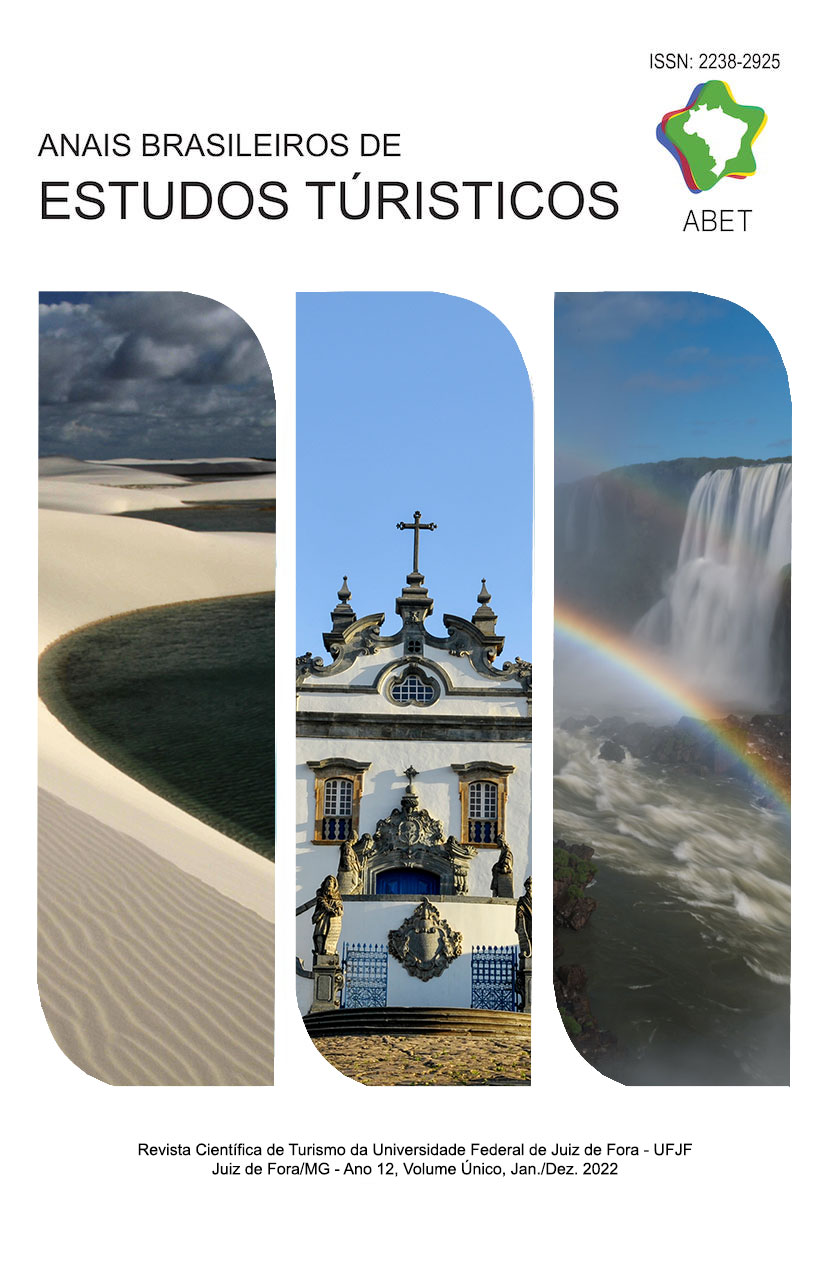Beyond the Protected World Heritage in Brazil
DOI:
https://doi.org/10.5281/zenodo.7314413Keywords:
Tourist Heritage, World Heritage, Heritage Protection, Heritage Conservation, Scientific ResearchAbstract
Heritage is at risk for several reasons: economic, health, climate, political, social and war crises. Even with the auspices of Unesco, the title of World Heritage, by itself, does not always protect the sites that have received this seal of approval. Brazil, with 23 World Heritage sites, whether cultural, natural and/or mixed, reflects in its territory aspects of this crisis that, in part, is the result of a disordered tourism. The dossier Tourism and Unesco World Heritage Sites in Brazil, from the Anais Brasileiros de Estudos Turísticos (Brazilian Annals of Tourism Studies), showed, through seven articles, several aspects and approaches about tourism in sites that house the national heritage recognized by Unesco. It was observed in the dossier that, in addition to the world heritage title, effective public policies and territorial management with popular participation are needed so that the "heritage-territory" is not reproduced, which touristifies in an unsustainable way. It is hoped that the heritage will primarily serve the communities inserted in and around these sites. And that even in areas already gentrified, governments, educational institutions and private companies may act to reinsert and integrate local communities and traditional populations in the tourist activity and as agents of heritage protection.
Downloads
Downloads
Published
How to Cite
Issue
Section
License
Copyright (c) 2022 Anais Brasileiros de Estudos Turísticos

This work is licensed under a Creative Commons Attribution 4.0 International License.
This journal provides immediate open access to its content, following the principle that providing free scientific knowledge to the public provides greater democratization of world knowledge.
Authors must agree to the following terms relating to copyrights:
(a) Authors keep all copyright and grant the to the journal the right of first publication, with the work simultaneously licensed under the Creative Commons Attribution License that allowing job sharing with recognition of authorship of the work and initial publication in this journal.
(b) Authors are allowed to assume additional contracts separately, for non-exclusive distribution of the version of the work published in this journal (e.g. publish in institutional repository or book chapter), with recognition of authorship and initial publication in this magazine.
(c) Authors are allowed and are encouraged to publish and distribute their work online (e.g. in institutional repositories or on your personal page) since they do not do this before or during the editorial process, as this can generate productive interchange, as well as increase the impact and citation of work aired. (See Effect of Free Access).















